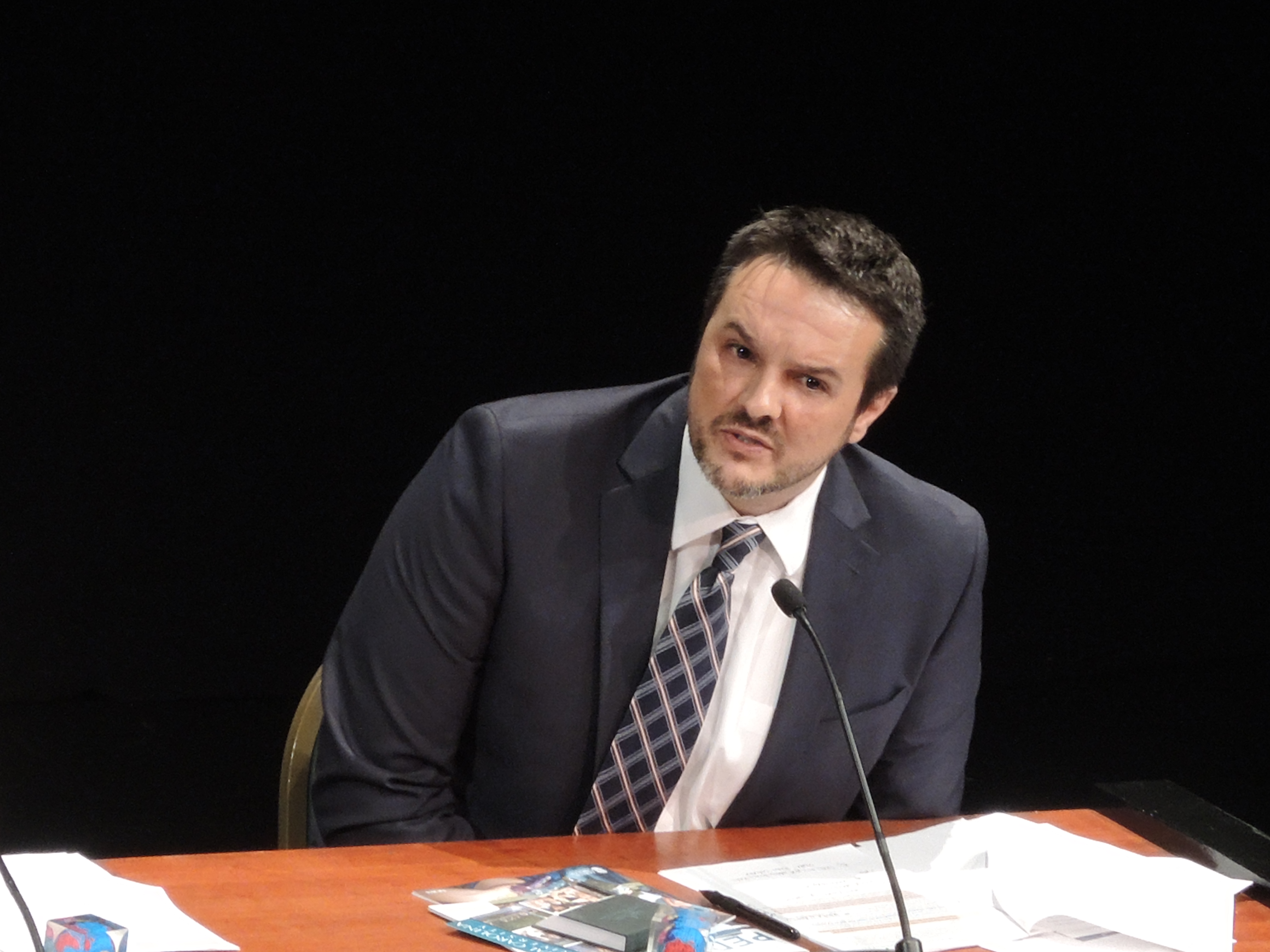I am always trying to learn more about the teaching profession. Not just because I will be marrying a teacher soon but because I am just so interested and appreciative of what they do. Yesterday evening I had the opportunity to grow my understanding of the profession a little bit more.
Our Spadoni College of Education here at CCU hosted the State of Education in South Carolina Educational Forum on Tuesday night. Sidney and I attended. Organized by Edward Jadallah, the dean of the college, it was pretty much an all-star event. The forum brought the state superintendent to campus to headline the evening. Two powerful players joined her on stage as well including the superintendent for Horry County Schools (the district that Sidney works in) and the superintendent for Georgetown County Schools. A couple more folks also added a lot to the event and I will get to them soon.
One thing you have to understand is that South Carolina is poor. Many students in the state’s schools come from families living way under the poverty line. Much of last night’s discussion centered on this issue.
The evening started with a keynote address from State Superintendent Molly Spearman. New to the job, she made her top goal very clear. She wants to implement more after school programs and summer programs for students in the state. She said it is crucial that these programs are available for the state’s poorest students. When the school year ends and summer begins, the progress that has been made by students coming from financially troubled families dissipates. While kids who are better off go to camps or on vacations, the ones without these advantages stay home and do very little. They gain no “life experiences” (phrase used over and over last night) and their progress shrinks. When school starts back up in August they are behind.
During Superintendent Spearman’s speech, she also briefly touched on the shocking video of the South Carolina resource officer manhandling a female student in a Columbia classroom. She called it “embarrassing.”
When she finished her address, the fun part of the night started. Spearman went from the lectern to a panel where she sat down with the district superintendents. Joining this powerful three was a teacher from the Georgetown County district and a teacher from Horry County. However, the latter teaching representative wasn’t just “a teacher”…he was Joey Trail, the 2015-16 Horry County Teacher of the Year AND a Coastal Carolina alumnus. Only a teacher for three years, I was excited to hear him speak.

Last night’s panel was made up of (L-R) State Superintendent Molly Spearman, Horry County Superintendent Rick Maxey, Georgetown County Superintendent H. Randall Dozier, Georgetown teacher representative Kristi Kibler, and Horry County teacher representative Joey Trail.
Much of what was said went over my head. Lots of teacher jargon and acronyms. With that said, I was able to pick up two certain points that were communicated with relative ease, mostly because of Joey Trail.
The first issue was teacher accountability. The panel all touched on it but when the discussion got to the very end of the table where Joey was seated, I truly learned what it meant and the controversy that surrounds it.
“Teacher accountability is synonymous with standardized test scores,” the teacher of the year stated.
So much weight is put on assessments blindly pushed to the multitudes that other metrics that should be used to gauge how a teacher is doing go unchecked. What about bringing culture and relevancy to a student with no life experiences? What about making a positive impact on a kid’s life? What about teaching a student to think critically? Why are these things overlooked? Well, Joey explained, it is to be expected when the people in charge of defining “teacher accountability” have never stepped inside a classroom to teach a lesson themselves.
Immediately this made sense to me. We all have past examples from our own professions and experiences where people who have no idea about what we do and the challenges we face try to dictate the best way to do our jobs or what constitutes success. However, it sounds like teachers have it especially rough. I now have a good understanding of the current climate of teacher accountability.
The second point that was communicated loud and clear to me is that students need love. As I mentioned, South Carolina schools welcome thousands and thousands of students from impoverished and broken homes. These are the kids, explained members of the panel, that need love the most. We aren’t talking a distant, metaphorical type of love either. They mean real love.
Echoed by the state superintendent down through Joey, last night wasn’t the first time I heard about teachers actually loving their students. Sidney tells me all the time that she loves and cares for the kids in her classroom. So while the concept isn’t entirely new to me, I am still trying to get used to it. I had fabulous teachers growing up but did I ever think they actually loved us? Hardly! If I became a teacher do I think I would ever be able to genuinely love my students, especially the ones with behavioral problems? I doubt it.
I really think this might be a Southern component of the education system. Like I said, I just can’t think of any of my past educators having this type of personal love for me or other students. It is definitely a very beautiful thing.
By attending the forum last night I walked away with a better understanding of education in South Carolina. I learned more about the perspective and challenges of Sidney while gaining even more respect for her. God bless our teachers. Don’t Blink.



